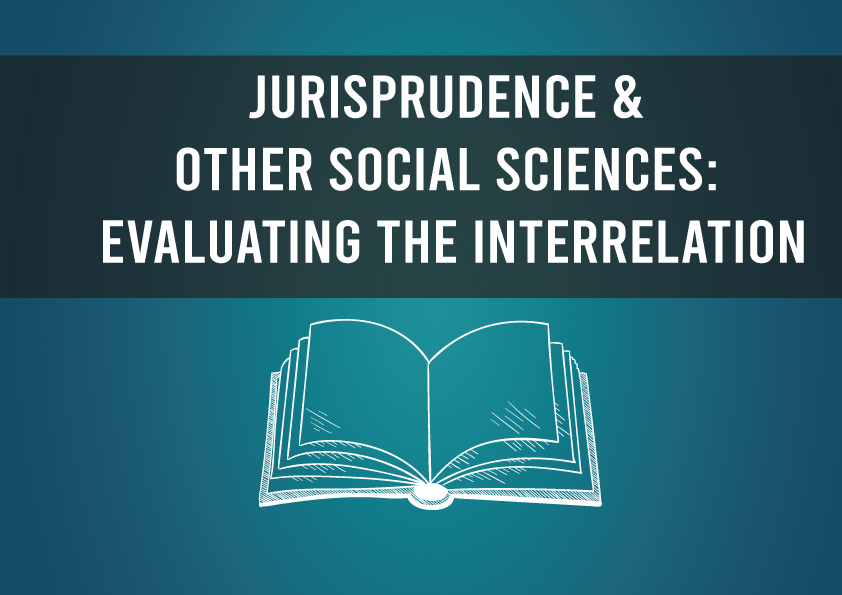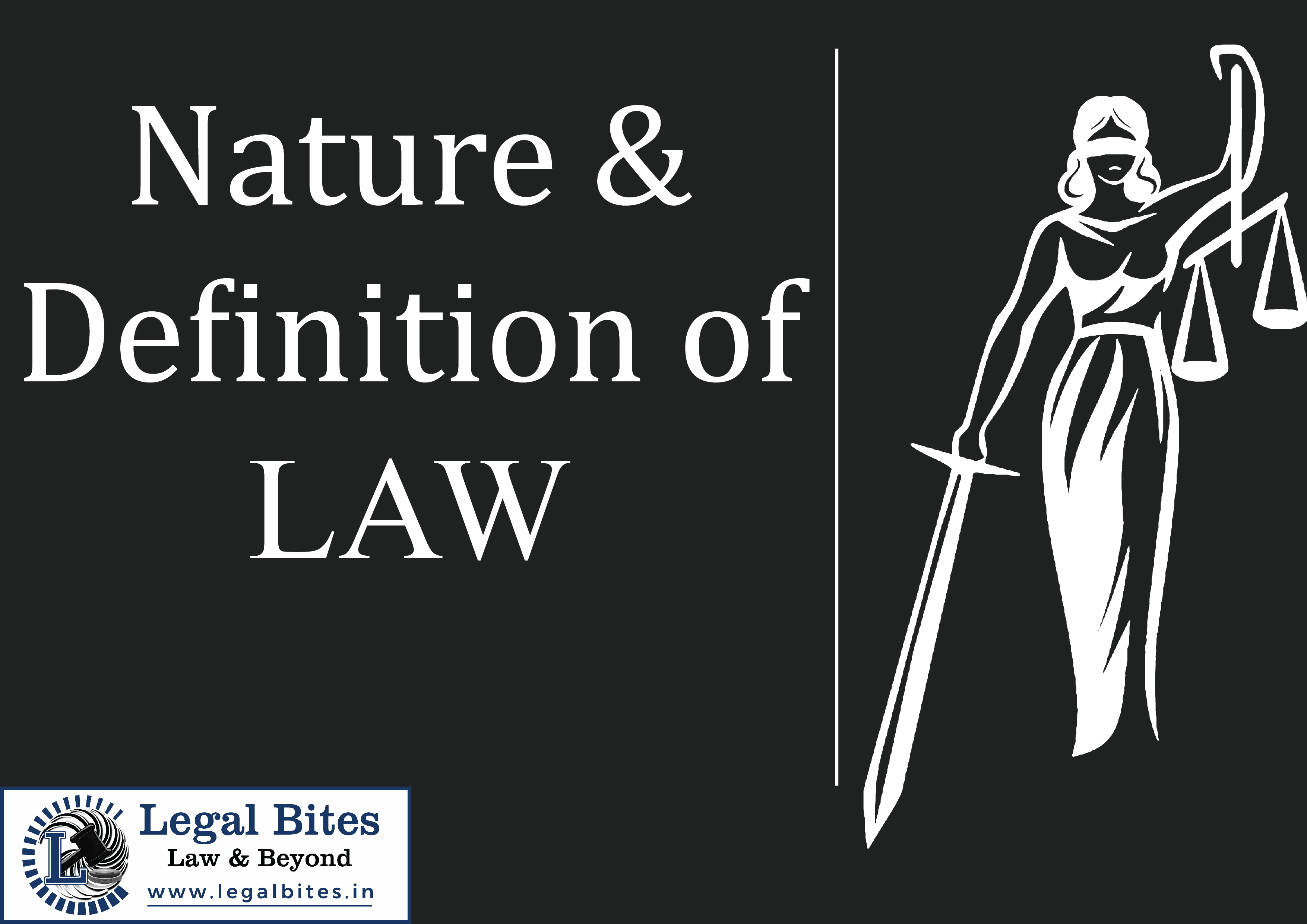Jurisprudence & Other Social Sciences: Evaluating the Interrelation
This article evaluates the interrelation of jurisprudence with other social sciences.;

Jurisprudence & Other Social Sciences: Evaluating the Interrelation | Overview Introduction Jurisprudence and Sociology Jurisprudence and Psychology Jurisprudence and Ethics Jurisprudence and Economics Jurisprudence and History Jurisprudence and Political Science Conclusion This article evaluates the interrelation of jurisprudence with other social sciences. The various social sciences are deeply inter-related. This makes it impossible to study a single social science...
Jurisprudence & Other Social Sciences: Evaluating the Interrelation | Overview
- Introduction
- Jurisprudence and Sociology
- Jurisprudence and Psychology
- Jurisprudence and Ethics
- Jurisprudence and Economics
- Jurisprudence and History
- Jurisprudence and Political Science
- Conclusion
This article evaluates the interrelation of jurisprudence with other social sciences. The various social sciences are deeply inter-related. This makes it impossible to study a single social science in complete isolation. The primary objective of all social sciences is to study human actions and behaviour in different forms.
Introduction
Law regulates significant aspects of human life. In simple terms, law is a set of regulations which are formulated by the state and are binding upon its subjects. Jurisprudence is the science of law. It has been described as the "grammar of law". In order to effectively interpret the law, it is essential to understand its origin, nature and meaning. Not only interpretation, but even the legislative process requires legislators to keep several factors in mind in order to ensure that the law that is made is effectively enforced and followed by all. Jurisprudence studies the law to facilitate better legislation as well as interpretation. In doing so, it uses the wisdom provided by other social sciences.
According to Paton, modern jurisprudence is mostly based on social sciences and philosophy since it examines the historical aspects of law to address the chaos created by conflicting legal systems. Describing jurisprudence as a "lawyer's extraversion", Julius Stone is of the opinion that the objective of jurisprudence is to view and examine law from the eyes of disciplines other than law. Roscoe Pound states that the subjects of jurisprudence, ethics, economics, politics and sociology might be quite distinct at the core, however, at a certain point they overlap with each other. He further adds on that it is impossible to understand their respective cores without studying this particular overlapping with other social sciences. According to him, all social sciences must especially co-work with jurisprudence. Let us evaluate the interrelation of jurisprudence with other social sciences.
Jurisprudence and Sociology
The objective of sociology is to study human actions in a social environment. It studies humans as members of social groups. Law is an important element of society. Therefore, sociologists have to understand law in order to understand society. However, a sociologist would not look at law in the same way as a lawyer. While a lawyer is concerned with the law itself, a sociologist is concerned with the impact of the law upon society. There is a separate branch of jurisprudence which comprises of sociological theories of law. Not only sociologists but lawyers too have to understand the society in order to understand the law. For instance, crime is essentially an act of social deviance and to understand the law of crimes, a basic understanding of the society is required. Earlier, the judges used to decide punishments based on popular opinion. However, now the process has become more technical and professional in nature with the opinions and studies of criminologists being taken into consideration.
According to Paton, it is essential to understand the relationship between law and social interests since such a study would lead to a better understanding of the evolution of law. The human factor in law cannot be entirely neglected. The ideas of jurists like Keeton asserting the necessity of studying law as devoid of any social interests is, indeed, compelling but appears to be quite impractical.
Jurisprudence and Psychology
Psychology is the science of human mind and behaviour. Its objective is to understand the reasons behind the way an individual responds to a stimulus. All the social sciences, including jurisprudence, study human actions. Psychology occupies a central position among the social sciences for it is imperative to understand the human mind before studying human actions. Law plays a regulatory role in a man's life. One cannot regulate without understanding the nature of that which is to be regulated. Therefore, it is important that a lawmaker understands basic psychological concepts. Such an understanding would enable the lawmaker in ensuring that the law is not only made but also effectively followed by the people.
It may be argued that jurisprudence is in no way concerned with the workings of a human mind. However, psychological researchers have greatly contributed to penology and criminology. The analytical positivists stress upon the importance of sanctions that are imposed by law. Some jurists believe that the sanctions are mostly psychological ones.
Jurisprudence and Ethics
Ethics scientifically studies human conduct. It deals with the concept of ideal human conduct. Such an ideal state is determined by popular opinions of what is good and what is bad. It depends upon the moral values of the society. Crimes are acts against the society at large which are penalized by law. Generally, law does not concern itself with the science of ethics. Sometimes ethics may help in the determination of whether an act should be criminalized or not. However, it must be noted that something that is considered to be unethical may not be a crime and vice versa. Ethics deals with the values and beliefs about ideal human conduct. The law deals with the regulation of human conduct. Thus, a jurist must have a basic understanding of the science of ethics in order to examine a law.
Austin divorced ethics from jurisprudence. The same has been criticized by many, for, it is believed that complete separation of ethics from jurisprudence would completely cut out the science of law from all forms of social contact and reduce it to a "system of rather arid formalism".
Jurisprudence and Economics
Economics refers to the science of wealth. Both, jurisprudence and economics aim for the betterment of the lives of the people. Economics aims for such betterment through the satisfaction of the needs and wants of the people, while jurisprudence, the science of law, aims for the betterment of the lives of the people through the enactment of welfare legislations. Wealth forms an important source of happiness, peace and fulfilment in an individual's life. Therefore, in order to enact good welfare legislations, a legislator must be mindful of the fundamental concepts of the science of wealth, that is, economics. Moreover, economic factors also lead to crime. Therefore, an understanding of economics is essential to address and prevent crime in society. Law also protects people from economic exploitation.
The intimate relation between law and economics was first emphasized by Karl Marx. After his theory, several jurists began to evaluate the relation between the science of wealth and the science of law.
Jurisprudence and History
History studies the events and happenings of the past. One of the important areas of jurisprudence is to understand the origin and evolution of law. Thus, the relation between jurisprudence and history is extremely close. In fact, there is an entire separate historical school of jurisprudence.
Jurisprudence and Political Science
According to Friedmann, jurisprudence is linked to philosophy at one end and to political theory on the other. The concept of law, as we know it today, originated with the concept of state. Political Science is the science of the state. The analytical school of jurisprudence considers law as the command of the sovereign. This 'sovereign' is what is known as the state. The various political theories regarding the origin of the state have been used by jurists to formulate theories regarding the origin, nature and functions of law.
Conclusion
The various social sciences are deeply inter-related. This makes it impossible to study a single social science in complete isolation. The primary objective of all social sciences is to study human actions and behaviour in different forms. Thus, it is important for a legal professional to be mindful of the intimate relations that jurisprudence shares with other social sciences.
References
- V. D. Mahajan, 'Jurisprudence and Legal Theory', Fifth Edition, Eastern Book Company.
- W. Friedmann, 'Legal Theory', Fifth Edition, Sweet & Maxwell (South Asian Edition).
Contributed by Tejas Vasani





